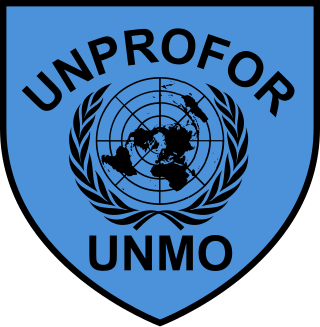
The United Nations Protection Force was the first United Nations peacekeeping force in Croatia and in Bosnia and Herzegovina during the Yugoslav Wars. The force was formed in February 1992 and its mandate ended in March 1995, with the peacekeeping mission restructuring into three other forces.

The United Nations Confidence Restoration Operation in Croatia, commonly abbreviated UNCRO, was a United Nations (UN) peacekeeping mission in Croatia. It was established under Chapter VII of the United Nations Charter and approved by the UN Security Council (UNSC) Resolution 981 on 31 March 1995. UNCRO inherited personnel and infrastructure from the United Nations Protection Force (UNPROFOR). Its command was located in Zagreb; the peacekeeping troops were deployed in four sectors named North, South, East, and West. Twenty different countries contributed troops to the mission.

The Croatian War of Independence was an armed conflict fought from 1991 to 1995 between Croat forces loyal to the Government of Croatia — which had declared independence from the Socialist Federal Republic of Yugoslavia (SFRY) — and the Serb-controlled Yugoslav People's Army (JNA) and local Serb forces, with the JNA ending its combat operations in Croatia by 1992.
The Battle of the Miljevci Plateau was a clash between the Croatian Army and forces of the Republic of Serbian Krajina (RSK), fought on 21–23 June 1992, during the Croatian War of Independence. The battle represented the culmination of a series of skirmishes between the HV and the RSK forces in Northern Dalmatia, after the implementation of the Vance plan and deployment of the United Nations Protection Force (UNPROFOR) began. The skirmishes occurred in the pink zones—areas under control of the RSK, but outside the UN Protected Areas established by the Vance plan.
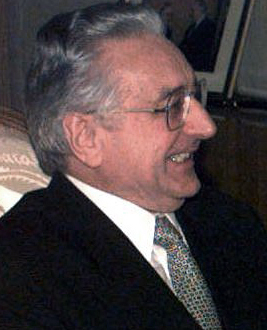
United Nations Security Council resolution 740, adopted unanimously on 7 February 1992, after reaffirming resolutions 713 (1991), 721 (1991), 724 (1991) and 727 (1992) and considering a report by the Secretary-General Boutros Boutros-Ghali, the Council approved plans for a peacekeeping mission in the Socialist Federal Republic of Yugoslavia.
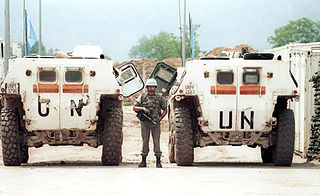
United Nations Security Council resolution 743, adopted unanimously on 21 February 1992, after reaffirming resolutions 713 (1991), 721 (1991), 724 (1991), 727 (1992) and 740 (1992), and considering that the situation in the Socialist Federal Republic of Yugoslavia constituted a threat to international peace and stability, the council established a peacekeeping mission in the country, known as the United Nations Protection Force (UNPROFOR), with the aim of reaching a peaceful political settlement in the region.
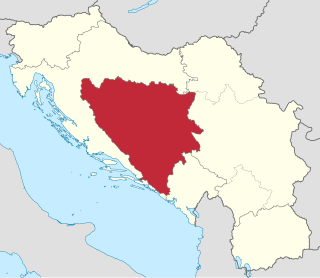
United Nations Security Council resolution 752, adopted unanimously on 15 May 1992, after reaffirming resolutions 713 (1991), 721 (1991), 724 (1991), 727 (1992), 740 (1992) 743 (1992) and 749 (1992), the Council expressed concern at the situation in the Yugoslavia, in particular the fighting in Bosnia and Herzegovina, demanding that all parties end the fighting and respect the ceasefire signed on 12 April 1992.

United Nations Security Council resolution 758, adopted unanimously on 8 June 1992, after reaffirming resolutions 713 (1991), 721 (1991), 724 (1991), 727 (1992), 740 (1992) 743 (1992), 749 (1992), 752 (1992) and 757 (1992), the council, in accordance with a report by the Secretary-General Boutros Boutros-Ghali, decided to enlarge the mandate and strength of the United Nations Protection Force (UNPROFOR) in former Yugoslavia.

United Nations Security Council resolution 771, adopted unanimously on 13 August 1992, after reaffirming resolutions 713 (1991), 721 (1991), 724 (1991), 727 (1992), 740 (1992), 743 (1992), 749 (1992), 752 (1992), 757 (1992), 758 (1992), 760 (1992), 761 (1992), 762 (1992), 764 (1992), 769 (1992) and 770 (1992), the council expressed concern at and condemned widespread violations of international humanitarian law in the territory of the former Yugoslavia and in particular, Bosnia and Herzegovina.

United Nations Security Council resolution 779, adopted unanimously on 6 October 1992, after reaffirming Resolution 743 (1992) and subsequent resolutions and noting a report by the Secretary-General Boutros Boutros-Ghali submitted pursuant to resolutions 743 and 762 (1992), the Council authorised the United Nations Protection Force (UNPROFOR) to assume responsibility for monitoring the complete withdrawal of the Yugoslav People's Army from Croatia, demilitarization of the Prevlaka peninsula and the removal of heavy weapons from neighbouring areas of Croatia and Montenegro in co-operation with the European Community Monitoring Mission.

United Nations Security Council resolution 787, adopted on 16 November 1992, after reaffirming Resolution 713 (1991) and all subsequent resolutions on the topic, the council called upon the parties in Bosnia and Herzegovina to consider the draft outline constitution as a basis for negotiating a political settlement of the conflict in the country, and went on to impose further international sanctions on the Federal Republic of Yugoslavia.
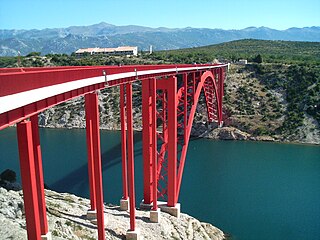
United Nations Security Council resolution 802, adopted unanimously on 25 January 1993, after reaffirming Resolution 713 (1991) and all subsequent relevant resolutions and expressing its concern at offensives by the Croatian Army in the United Nations Protected Areas, the council demanded the immediate cessation of hostilities and the withdrawal of Croatian forces from the areas.

United Nations Security Council resolution 807, adopted unanimously on 19 February 1993, after reaffirming Resolution 743 (1992) and all subsequent relevant resolutions concerning the United Nations Protection Force (UNPROFOR), the Council determined that the situation in Bosnia and Herzegovina and Croatia continued to constitute a threat to international peace and security and therefore extended the mandate of UNPROFOR for an interim period ending 31 March 1993.

United Nations Security Council resolution 820, adopted on 17 April 1993, after reaffirming all previous resolutions on the topic for a lasting peace settlement in Bosnia and Herzegovina and the region, the council discussed the peace plan for Bosnia and Herzegovina and comprehensive steps to ensure its implementation.
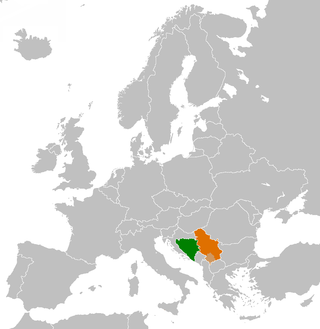
United Nations Security Council resolution 838, adopted unanimously on 10 June 1993, after reaffirming Resolution 713 (1991) and all subsequent resolutions on the situation in the former Yugoslavia and in particular Bosnia and Herzegovina, the Council discussed options for the deployment of international observers on the borders of Bosnia and Herzegovina to ensure implementation of previous Security Council resolutions.
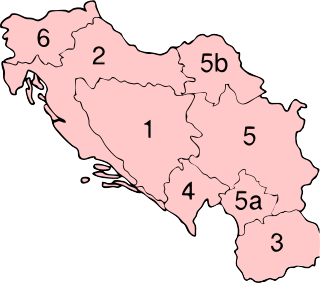
United Nations Security Council resolution 871, adopted unanimously on 4 October 1993, after reaffirming resolutions 713 (1992) and 743 (1992) and subsequent resolutions relating to the situation in the former Yugoslavia and United Nations Protection Force (UNPROFOR), the Council expressed concern that United Nations peacekeeping plan for Croatia, in particular Resolution 769 (1992), had not been implemented and went on to discuss the peace plan and extend UNPROFOR's mandate until 31 March 1994.
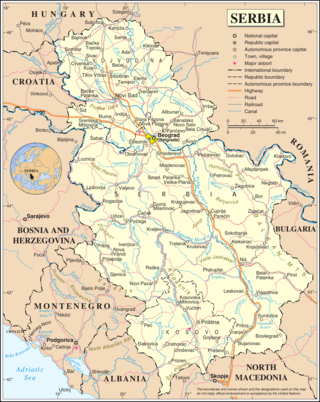
United Nations Security Council resolution 970, adopted on 12 January 1995, after reaffirming all resolutions on the situation in Bosnia and Herzegovina in particular Resolution 943 (1994) concerning the border closure between the Federal Republic of Yugoslavia and Bosnia and Herzegovina, the Council decided that measures in that resolution would be suspended for a further period of 100 days.

United Nations Security Council resolution 981, adopted unanimously on 31 March 1995, after reaffirming all resolutions on the situation in the former Yugoslavia, the council established the United Nations Confidence Restoration Operation in Croatia (UNCRO) for a period terminating 30 November 1995.

United Nations Security Council resolution 994, adopted unanimously on 17 May 1995, after reaffirming all resolutions on the conflicts in the former Yugoslavia, particularly resolutions 981 (1995), 982 (1995) and 990 (1995), the Council discussed the withdrawal of Croatian Army from the zone of separation taken in Operation Flash on May 1st and the full deployment of the United Nations Confidence Restoration Operation in Croatia (UNCRO).
The Vance plan was a peace plan negotiated by the former United States Secretary of State Cyrus Vance in November 1991 during the Croatian War of Independence. At that time, Vance was the Special Envoy of the Secretary-General of the United Nations; he was assisted by United States diplomat Herbert Okun during the negotiations. The plan was designed to implement a ceasefire, demilitarize parts of Croatia that were under the control of Croatian Serbs and the Yugoslav People's Army (JNA), allow the return of refugees, and create favourable conditions for negotiations on a permanent political settlement of the conflict resulting from the breakup of Yugoslavia.

















